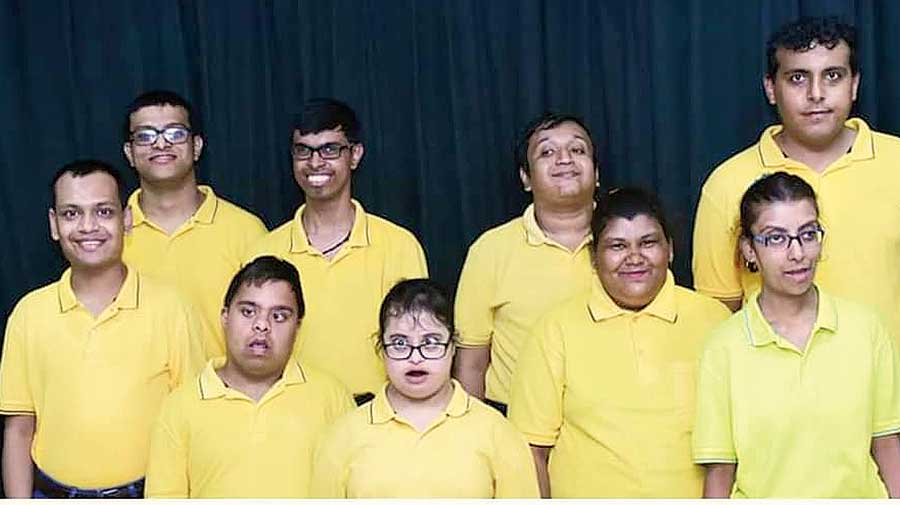A cafe on Lake Road run by young people with intellectual disabilities is shut during the lockdown.
A bakery in Behala where employees are deaf and mute has hardly received orders.
The Covid-19 crisis has put many people out of work. And some of them are with disabilities. The pandemic has abruptly halted their only shot at mainstream life, their parents and activists have said.
Many establishments in the city have reopened but some that employed people with disabilities have not. The main reason, according to employers and activists, is the “near impossibility” of them being able to spend time in isolation if they contracted the virus.
Sixteen youngsters with autism, Down’s syndrome and other cognitive impairments used to run Sip N Bite, set in a section of a craft store near Charu Chandra College. From rustling up a frothy shake to handling inventory, they handled everything, including serving food and refreshments to customers.
Srutarshi Banerjee, who has autism, used to manage the billing section and keep track of the inventory at the cafe. The 27-year-old has cleared a secondary-level data entry operator’s course under the National Institute of Open Schooling and is familiar with Microsoft Excel.
At home, he is back to assisting his mother in the kitchen. “He keeps talking about the cafe. He had a job and he loved it,” Shambhu Nath Banerjee, his father, said.
Banerjee, who is a member of a parents’ group that collaborated with an NGO to start the eatery, said financial independence was the key to a life of dignity for people with disabilities.
“Going out to work gave them a certain dignity of working independently and being meaningfully engaged. That is now being threatened,” Anamika Sinha, director of Manovikas Kendra, said. “It is a difficult time for everybody but individuals with disabilities have limited choice. For many of them, getting that job was a struggle. There is an apprehension if they will get a similar job or a considerate employer.”
Saurabh Bhattacharyya, the vocational centre training head at the Indian Institute of Cerebral Palsy, said: “Even if they manage to travel to work, the problem is that the production has been suspended or limited production is happening; so, they don’t need to go to work now.”
At a bakery in Behala, Shuktara Cakes, most of the employees are deaf and mute. The bakery used to get orders from several cafes. The number has hit rock bottom since it reopened.
“Now, we have started taking orders, but there is hardly any. Before the lockdown, we had been supplying to 10 cafes; now, no one is placing orders,” Somnath Sardar, head of Shuktara Cakes, said.
Activists and parents are concerned about a future when people with intellectual disabilities get back to work. The worry: how to teach them to follow distancing rules.
“Social interactions have been one of the integral parts of their training,” Amrita Roy Chowdhury, founder of NGO Transcendent Knowledge Society, said. “But now, how do we teach them social distancing, which is going to affect our lifestyles in various ways.”
The NGO had collaborated with the parents’ group to launch Sip N Bite.
Reena Sen, the honourary secretary of the IICP, had a glimmer of hope. “The pandemic has set us back many steps. But I have been with people with disabilities for more than 40 years. Every setback is an opportunity for learning. People with disabilities should understand that being part of the mainstream also means suffering with the mainstream. A pandemic cannot destroy us. We need to build robust and resilient individuals and organisations to weather the storm.”











